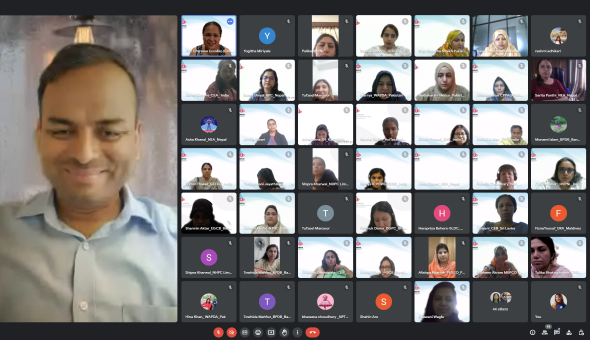

The objective of the program was to support the technical capacity building of women to help their careers in the SAR energy sector. The outcomes of the project benefitted mid-career women engineering/technical professionals working in the South Asia region. This training delivered two sets of activities that will benefit women working at all levels of the energy sector value chain:
a) Develop and standardize suitable curriculum for training and,
b) Deploy technical trainings for mid-career women professionals
The Curriculum primarily focused on:
(i) Operation of regionally integrated power systems with high penetration of renewable energy, including hydropower; and
(ii) Power markets for regional integration and scaling-up renewable energy, including hydropower
While particularly relevant in the context of the Bhutan-Bangladesh-India-Nepal (BBIN) regional grid that optimizes hydropower from Bhutan and Nepal, and solar energy from India to meet regional demand, the LSTP Program was also relevant for Maldives, Pakistan and Sri Lanka, who are also increasingly reliant on distributed power generation.
LSTP was envisaged as a hybrid, multi-modal program, where real-time online classes were augmented by onsite instruction in field conditions, culminating in an intensive capstone workshop held face-to-face in Bangkok.
Asian Institute of Technology anchored the design and delivery of the SAR100 program within defined time and resource parameters. The training methodology was a Hub-and-Spoke design wherein national partners from different countries delivered the training in a decentralized manner.
These course-packs were the principal resource for participants and remain with them as a permanent resource.

- Module overview and learning objectives
- Required resource materials, reading lists and online links
- Guidance on requirement for successful completion and assessment

- Reference material and links
- Assignments and task sheets
- Reporting frameworks and templates

- Introductions to SAR100 students, faculty and program management
- Abstract of presentations and panels and feedback forms
- Detailed Program of learning activities, field visits and leisure options
In addition to the technical course content, SAR100 participants will also benefit from:
- A full module on soft skills that help build gender awareness, mitigate unconscious bias
- Foster leadership potential among women professionals